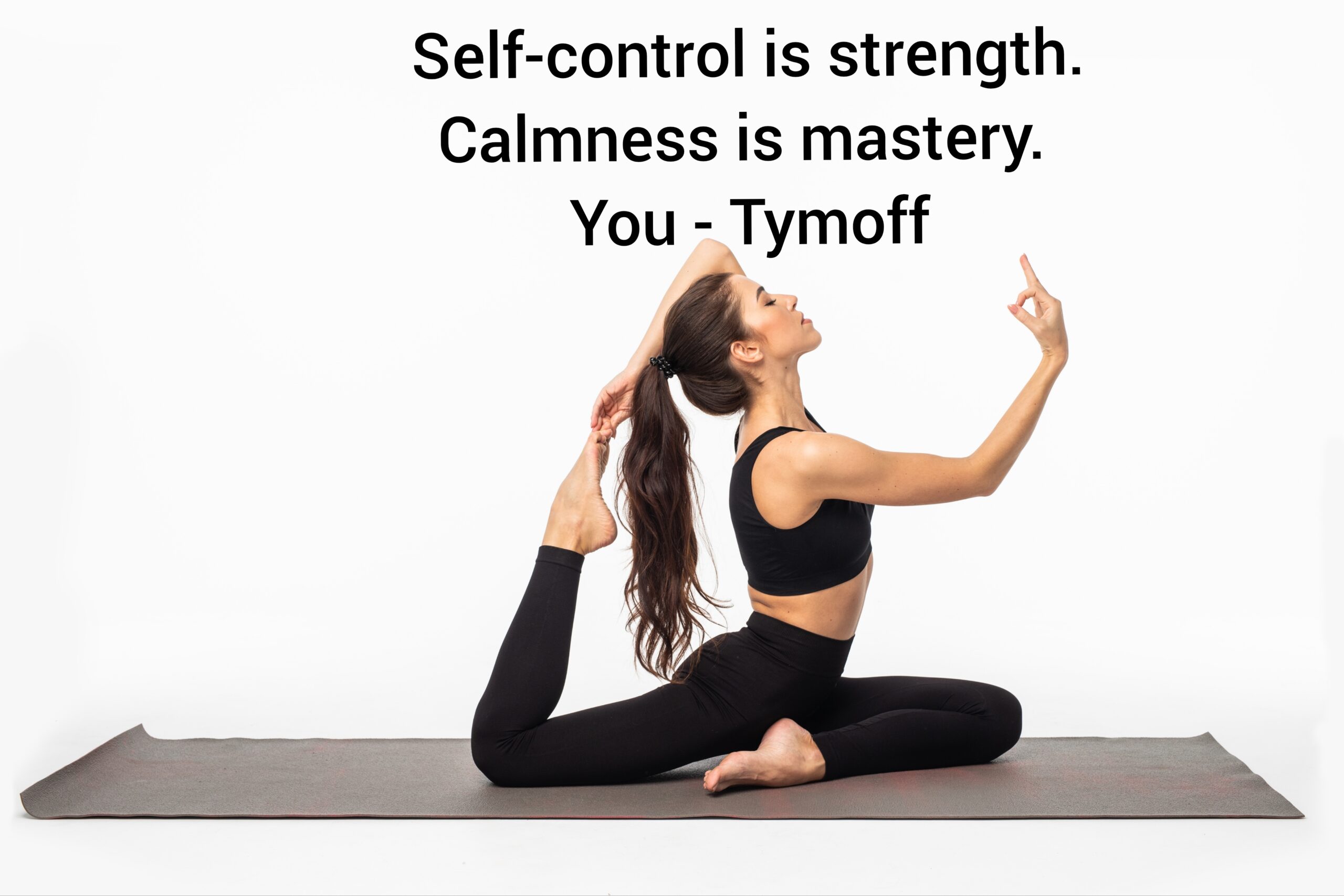Self-control is often seen as one of the hardest personal traits to master, but it’s also one of the most rewarding. When you hear the phrase “self-control is strength, calmness is mastery, You – Tymoff” it’s a reminder that real power doesn’t come from outward dominance or force, but from the ability to control our emotions and responses. Tymoff’s famous quote captures this truth in a succinct way. But what exactly does it mean? How can we embody both self-control and calmness in our everyday lives? Let’s dive into these concepts and explore their deeper meanings.
Understanding Self-Control
We’ve all experienced moments where our patience is tested or we’re tempted to make rash decisions. This is where self-control steps in. But what exactly is self-control, and why is it so important?
What is Self-Control?
Self-control refers to our ability to regulate our emotions, thoughts, and behaviors in the face of temptations and impulses. It’s like having an internal guide that helps us make better choices, even when immediate gratification seems so appealing. Psychologically, it’s the ability to delay short-term desires in pursuit of long-term goals. Think of self-control as a mental muscle—the more you exercise it, the stronger it gets.
Why Is Self-Control Important?
Without self-control, we’d be at the mercy of our impulses, often making decisions that aren’t in our best interest. Self-control is crucial for success, maintaining relationships, and leading a balanced life. It affects everything—from resisting that extra slice of cake to managing stress during a work deadline. In fact, research shows that people with higher self-control tend to have better health, stronger relationships, and more professional success.
Self-Control vs. Impulse
It’s easy to confuse impulsiveness with spontaneity, but they’re quite different. While spontaneity is about flexibility and quick thinking, impulsiveness is acting without considering the consequences. When we lack self-control, we’re more likely to act impulsively, which can lead to regret and mistakes. Having self-control means thinking things through and making decisions with a clear mind.
The Strength of Self-Control
Self-control isn’t just about saying “no” to temptations. It’s about resilience. It’s about standing firm in the face of adversity and not letting your emotions dictate your actions.
Building Resilience Through Self-Control
Think of self-control as the foundation of emotional resilience. When life throws challenges your way, it’s your self-control that allows you to stay grounded, make rational decisions, and not crumble under pressure. Whether it’s managing a difficult conversation with a boss or resisting the urge to react angrily in traffic, self-control helps you maintain composure.
Self-Control in Difficult Situations
We’ve all been in situations where our patience is tested—an argument with a loved one, a stressful work environment, or even personal disappointments. In these moments, the strength of self-control comes into play. It’s easy to react emotionally, but it takes strength to respond thoughtfully and calmly. Mastering self-control in such moments is what sets us apart from being ruled by our emotions.
Calmness as Mastery
While self-control is strength, calmness is the ultimate mastery. It’s about maintaining peace even when chaos surrounds you.
What Does It Mean to Be Calm?
Calmness is not the absence of challenges or stress; it’s the ability to remain poised and collected in the face of those challenges. Imagine a lake—calm on the surface, even if there are currents beneath. Being calm doesn’t mean you’re not feeling emotions, but rather that you’re not letting those emotions overwhelm you.
How Calmness Leads to Mastery
Mastering calmness leads to emotional intelligence and helps you navigate the ups and downs of life with grace. When you’re calm, you’re in control. You think more clearly, make better decisions, and are able to manage stress without it controlling you. People who master calmness tend to inspire those around them. After all, who doesn’t admire someone who can stay composed when everyone else is losing their heads?
The Relationship Between Self-Control and Calmness
Self-control and calmness go hand in hand. When you have one, the other tends to follow.
Self-Control Fuels Calmness
When you control your impulses, you reduce stress, and naturally, you become calmer. For instance, resisting the urge to argue with someone out of frustration leads to a more peaceful mind. By practicing self-control, you create the conditions for calmness to flourish.
Calmness Strengthens Self-Control
In turn, staying calm helps you maintain your self-control. Have you ever noticed that when you’re stressed or upset, it’s harder to think clearly and make rational decisions? Calmness helps you take a step back, breathe, and assess the situation. It strengthens your ability to act with control and not let emotions take the wheel.
Practical Ways to Develop Self-Control and Calmness
Now that we understand the importance of self-control and calmness, how can we cultivate these traits in our own lives?
Mindfulness and Meditation
Mindfulness and meditation are excellent tools for developing both self-control and calmness. By practicing mindfulness, you learn to become aware of your thoughts and feelings without immediately reacting to them. Meditation, on the other hand, helps calm the mind and reduce stress, making it easier to maintain self-control in difficult situations.
Setting Clear Boundaries
Another practical way to develop self-control is by setting clear boundaries. Whether it’s limiting your screen time, creating a budget, or deciding when to say “no,” boundaries help you stay in control. Setting boundaries also reduces overwhelm, helping you remain calm even when life gets busy.
Conclusion
In summary, self-control and calmness are two sides of the same coin. They help us navigate the challenges of life with strength and poise. By mastering self-control, we strengthen our ability to stay calm in even the most stressful situations. And by staying calm, we reinforce our self-control. It’s a virtuous cycle that leads to emotional intelligence, resilience, and ultimately, a more fulfilling life.
Stay informed with the latest news and updates on lookatnews.co.uk
